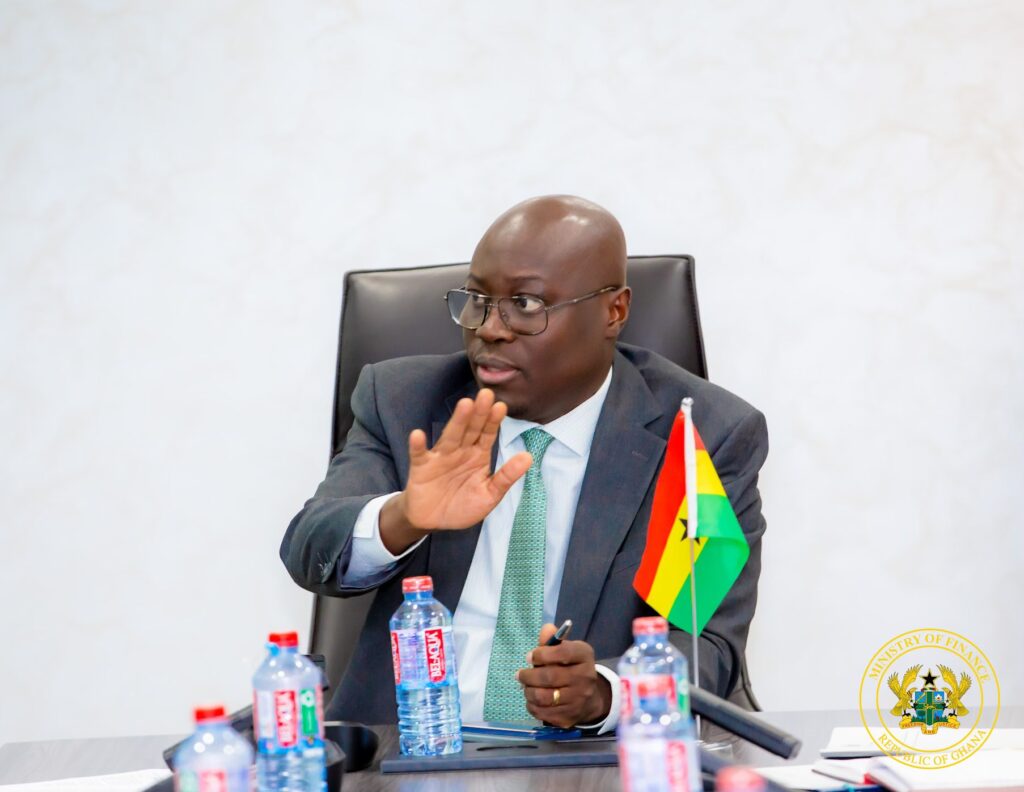The Minister for Finance of the Republic of Ghana, Dr Cassiel Ato Forson, has reaffirmed his commitment to addressing the concerns of tertiary education unions, announcing that the long-awaited Book and Research Allowance has been fully provided for in the 2025 Budget.
This assurance came during a constructive meeting between the Finance Minister and the leadership of the University Teachers Association of Ghana (UTAG), the Technical University Teachers Association of Ghana (TUTAG), and the Colleges of Education Teachers Association of Ghana (CETAG).
“This engagement was prompted by a request they submitted regarding the disbursement of the Book and Research Allowance. I assured them that the allowance has been fully captured in the 2025 Budget.”
Hon. Dr Cassiel Ato Forson, Ghana’s Minister for Finance
To underscore the government’s proactive stance, the Minister further stated that “the necessary processes have since been initiated in close collaboration with the Ministry of Education to ensure its release.”
This commitment aims to provide much-needed financial support for academic and research pursuits, a vital component of tertiary education development.

Improving Industrial Relations Labour Relations Desk
Beyond the immediate issue of the allowance, the meeting served as a platform for broader discussions on improving industrial relations.
The Minister also welcomed a significant proposal from the unions for a dedicated Labour Relations Desk within the Ministry of Finance, highlighting its potential to foster enhanced dialogue and responsiveness in public sector labour matters.
He commended the union leaders for their “constructive proposal to establish a dedicated Labour Relations Desk within the Ministry of Finance.“
This innovative initiative, once operationalized, is envisioned to “strengthen coordination with our counterparts on the labour front and enhance dialogue and responsiveness.”
The establishment of such a desk signals a strategic shift towards a more structured and proactive approach to managing the government’s relationship with public sector unions, moving away from reactive measures to foster an environment of continuous engagement and mutual understanding.

Payrol Reforms
A significant portion of the meeting was dedicated to updating the union leadership on ongoing payroll reforms, particularly the comprehensive audit being conducted by the Auditor-General.
The Minister revealed that “preliminary findings indicate a significant presence of ghost names on the payroll.” This discovery, while concerning, presents a substantial opportunity for the nation, as the Minister noted that addressing these irregularities decisively “could yield substantial savings for the public purse.”
Recognizing the critical role that union leadership plays in national exercises, the Minister urged the UTAG, TUTAG, and CETAG leaders to “lend their support to this important national exercise.”
He stressed that the cleaning of the payroll transcends mere fiscal prudence, asserting that it is fundamentally “about restoring integrity and fairness in public sector compensation.”
This emphasis highlights the moral and ethical dimensions of the audit, aiming to ensure that public funds are utilized effectively and that compensation is genuinely directed towards legitimate public servants, thereby enhancing public trust and accountability.

The Finance Ministry’s dialogue with the tertiary unions is a testament to its broader commitment to collaborative governance.
The Minister reiterated the government’s resolve to “work closely with all stakeholders to build a sustainable, equitable, and accountable public service.”
This comprehensive vision encompasses not only efficient financial management but also the creation of a fair and transparent compensation system that rewards legitimate work and eliminates avenues for malfeasance.
The proactive engagement with key labour stakeholders on issues ranging from allowances to payroll integrity demonstrates a concerted effort to foster a stable and productive environment within Ghana’s vital public sector, particularly in the critical domain of tertiary education.
This commitment to dialogue and reform aims to prevent future industrial actions by addressing grievances before they escalate, while simultaneously safeguarding national resources.
The proposed Labour Relations Desk, coupled with the ongoing payroll audit, represents key pillars in the government’s strategy to enhance efficiency, transparency, and trust within the public service, ultimately contributing to Ghana’s overall socio-economic development.
READ ALSO: UK Commits £14.2 Billion to Nuclear Power Expansion



















